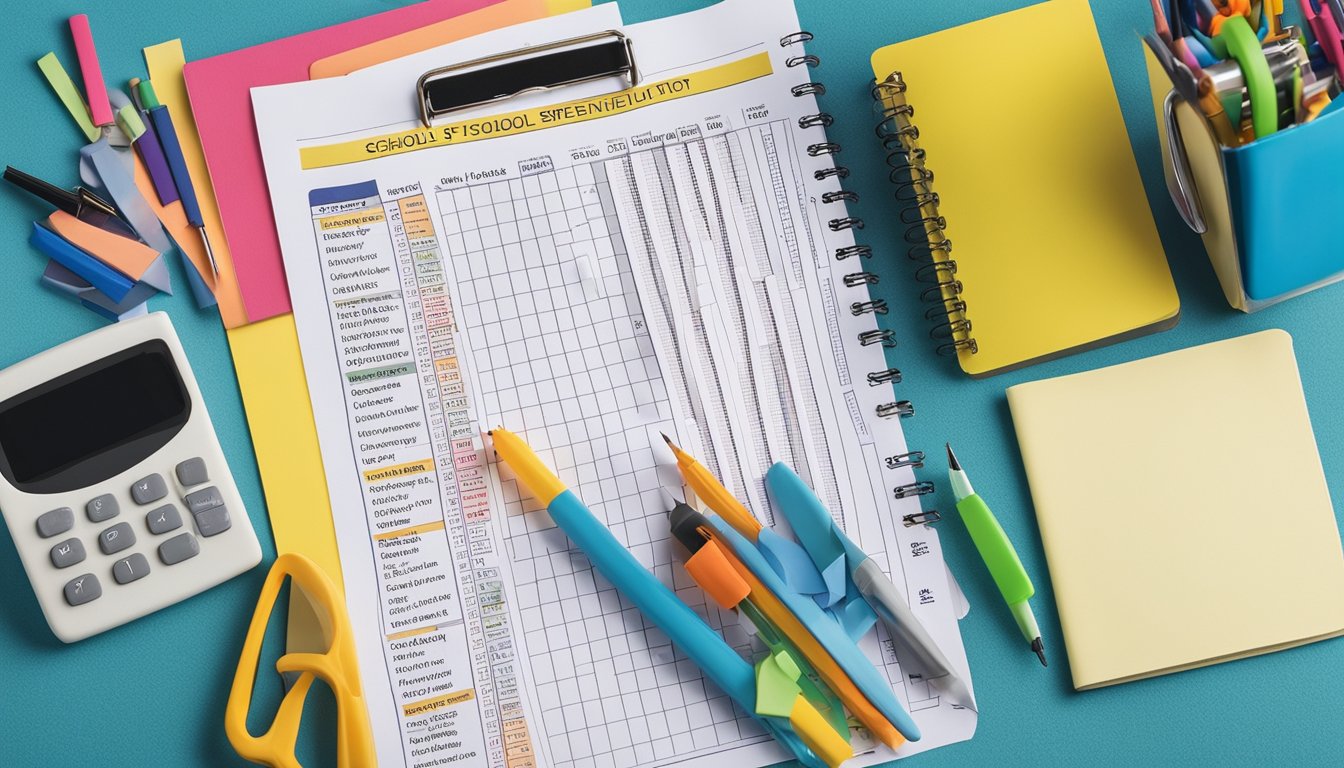Late updated: 17 Sep 2024 16:09
Written by:
Top Tips for School Visit Preparation: Essential Advice for Parents and Students
School visits can be exciting yet somewhat daunting experiences. They're the best opportunity for parents and students to assess whether a school aligns with their values and goals. The key to making the most of a school visit lies in thorough preparation and strategic questioning. By developing a clear understanding of what you hope to learn from the visit, you can optimise the experience to fit your needs.

Preparation is crucial in ensuring that the visit is fruitful. Researching the schools you're considering helps frame the questions you might want to ask. Engage with other parents who have insights into your prospective schools of interest, allowing you to have a more comprehensive view on what to expect. This proactive approach will enable you to capture the school's vibe effectively.
During the visit, look for specific evidence of what sets the school apart. Consider the school's facilities, teaching approach, and atmosphere. Take notes so you can compare various schools accurately later. By focusing on these important elements, we can make informed decisions about where to enrol.
Key Takeaways
- Preparation is essential for a successful school visit.
- Identify questions and gather insights from resources and peers.
- Observe and document key aspects during the visit for evaluation.
Preparing for the School Visit

Preparing for a school visit involves gathering information on the school's curriculum and investigating the available facilities and resources. These steps help ensure we have a rounded perspective to make informed decisions.
Understanding the School's Curriculum
Evaluating the curriculum is crucial. We should examine the subjects offered and their alignment with our educational priorities. Look into whether the school provides a comprehensive range of subjects, such as sciences, arts, and humanities. Additionally, identifying opportunities for extra-curricular activities that align with a student’s interests and career aspirations is important.
The availability of professional development for teachers also contributes to curriculum quality. It is beneficial to ask about training and workshops teachers attend to stay updated on educational trends. This information gives us insight into how the school adapts to changes in curriculum needs and teaching methods.
Exploring School Facilities and Resources
During a school visit, observing the available facilities can reveal much about the educational environment. We should check the library resources since a well-stocked library supports academic growth and independent learning. Ask about technology integration within the classrooms and the availability of labs for science subjects, as these elements are important for modern education.
Open houses provide a chance to explore these facilities first-hand and ask pertinent questions about maintenance and accessibility. It's beneficial to gauge how the school supports a safe and engaging learning atmosphere. Access to sports complexes, music rooms, or dedicated art areas also indicates a school’s commitment to fostering diverse talents and interests.
Making the Most of the Visit
During a school visit, it's essential for us to gather valuable insights. Connecting with teachers and staff, observing classroom dynamics, and evaluating outdoor and extracurricular resources are vital components.
Engaging with Teachers and Staff
Interacting with teachers and staff is crucial. We should enquire about teaching methodologies and student engagement strategies. Understanding these aspects can provide a glimpse into the school's educational philosophy. Observing teacher-student interactions sheds light on discipline and rapport which influence learning experiences.
In addition, meeting administration staff offers insight into the school's operational priorities. We should ask about policies on inclusivity and safety as these significantly impact a child's day-to-day school life. By engaging thoughtfully, we can better ascertain if the school aligns with our educational values.
Observing Classroom Environment and Child Care
The classroom environment hugely influences learning. We must look for a space that is organised, encouraging, and equipped with resources that promote active learning. Evaluating the balance between traditional and innovative teaching tools helps in understanding the school's pedagogical approach.
Attention should also be given to child care provisions, particularly for younger children. Observing the approach to breaks, playtime, and mental health support can reveal much about a school's commitment to nurturing well-rounded students. Focused attention on these aspects ensures our child receives quality education in a supportive environment.
Assessing Outdoor and Extracurricular Opportunities
Extracurricular activities and outdoor spaces are more than just add-ons; they are integral to holistic development. During the visit, let's take note of sports facilities, playgrounds, and access to nature. Opportunities for outdoor learning and play contribute positively to physical health and social interaction.
Extracurricular programmes should offer a diverse range of activities, from arts to science clubs, ensuring every student finds their niche. A school with robust extracurricular options supports our child in discovering and nurturing their passions. Evaluating these opportunities helps us to select a school environment supportive of both academic and personal growth.
Frequently Asked Questions

In this section, we outline crucial points to consider during school visits. Each subtopic provides targeted advice on aspects like checklist items, strategic planning, and key inquiries during tours.
What items should be included on a checklist for a college visit?
When preparing for a college visit, we recommend including a campus map, a list of scheduled meetings or tours, questions for admissions, and a notebook for observations. Bringing a camera or smartphone for photos can also be beneficial for remembering details.
What is the recommended number of college visits for prospective students?
We suggest visiting at least three to five colleges to get a comprehensive understanding of different campuses. These visits should include a mix of universities, such as public, private, large, and small institutions, to help us make informed comparisons.
Which critical questions should a teacher ask during a school tour?
Teachers should inquire about teaching methodologies, student support services, and class sizes. It's also essential to ask about the school's values and how they integrate technology into the curriculum to ensure it aligns with our educational goals.
What is the optimal approach to scheduling college visits?
Planning college visits during weekdays is ideal as it allows us to see the campus in action. Scheduling visits during term time provides opportunities to attend classes, speak with current students, and better experience daily life at the institution.
What are essential questions parents should ask a school before enrolment?
Parents should ask about the school's ethos, safety policies, and academic performance. Questions regarding extracurricular activities and support for students with special needs are also crucial to determine whether the school is a good fit for their child.
How can students best prepare for an educational field trip?
Students can prepare for a field trip by researching the destination, understanding its significance, and setting learning objectives. Bringing necessary materials such as notebooks, pens, and cameras ensures that we make the most of the experience.
